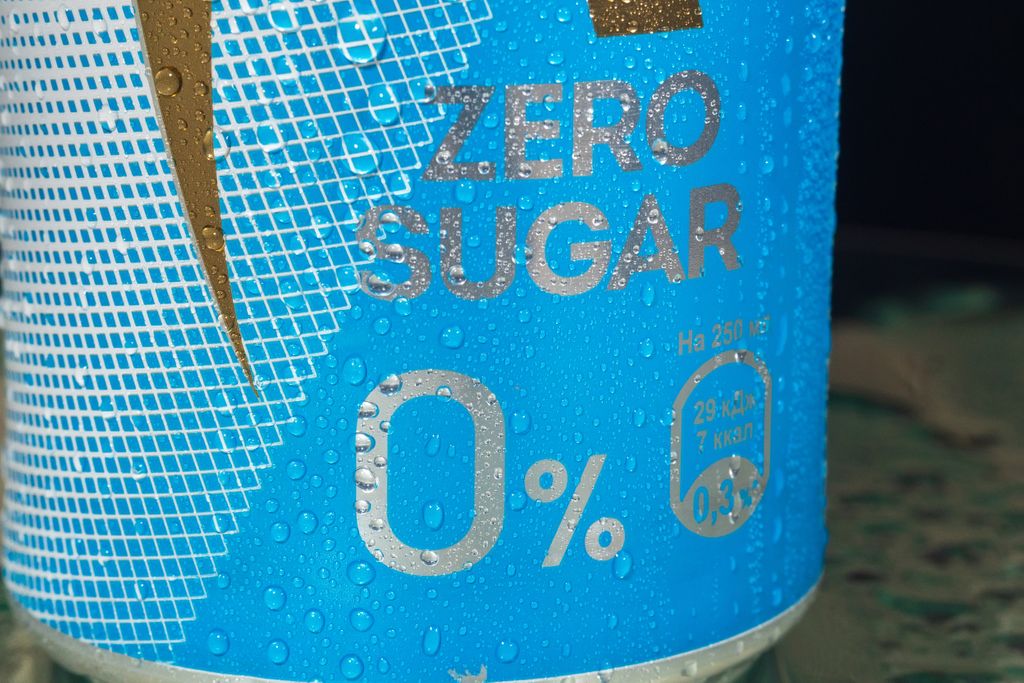
Consumption of sweeteners is associated with an increased risk of cancer
At first glance, sweeteners seem an interesting alternative: they reduce the sugar content of foods (and the corresponding calories), while giving them a sweet taste. Every day, millions of people consume these so-called “light” products. However, the safety of these additives remains a matter of debate among the scientific community. To remove doubt once and for all, French researchers analyzed the health and sweetener consumption data of 100,000 French people who took part in it. NutriNet-Santé . Cohort StudyWhich since 2009 has aimed to establish links between nutrition and health. Their results have just been published in Review MEDICINE PLOS.
Additives that are mainly consumed by sugar-free soft drinks
Scientists have studied the effects of all sweeteners, especially aspartame [E951]acesulfame-K [E950] and sucralose [E955], which is the most consumed. Aspartame has an energy value similar to that of sugar (4 kcal/g), for 200 times higher sweetening energy – so much less is required to get the same result, which is of great interest to manufacturers. Similarly, acesulfame-K and sucralose have a sweetening power of 200 and 600 times higher, respectively (no calories).
The data reviewed in this study included a total of 102,865 adults (78.5% of whom were women). Dietary intakes were obtained through online self-reporting by participants, who, over multiple 24-hour periods, identified all foods and beverages they consumed during main meals and other snacks (including portion sizes).
>> ALSO READ: Can You Die From A Sugar Overdose?
Likewise, their exposure to artificial sweeteners was assessed by food records, which included the brand names of the artificial products. Note that this food additive is not only used in traditional sweet products: it is also widely used in other unsweetened products to enhance their taste (usually in snacks).
The relative contribution of each food group to the total consumption of artificial sweeteners (in percentage) according to NutriNet-Santé, France, 2009-2021 (n = 102865). ** Artificial sweeteners used in tablet, liquid or powder form, added by participants in yoghurt, hot drinks, etc. or for bread. *** Substitutes for high-protein foods, sweet foods, biscuits, cakes, pastries, breakfast cereals, sauces, salty products and highly processed fish products. Credits: C. Debras et al. , PLOS Medicine (2022)
37% of participants consumed artificial sweeteners – aspartame was the most consumed, contributing 58% of intake, followed by acesulfame-K (29%) and sucralose (10%). Soft drinks without added sugar, table sweeteners, and yogurt/cottage cheese were the main contributors to total consumption of artificial sweeteners, accounting for 53%, 29%, and 8% of intakes, respectively, the researchers identified in MEDICINE PLOS.
The researchers also collected information about how the participants’ health changed during the follow-up period (2009-2021). During this period, 3,358 cancer cases were diagnosed (including 982 breast cancer, 403 prostate cancer and 2,023 obesity-related cancers); The mean age at diagnosis was 59.5 ± 12.2 years.
>> Read also: Why fruit sugar is good for health and processed sugar is not
13% increase in cancer risk
For this analysis, it is clear that the researchers took into account many potential confounding factors (age, gender, education level, physical activity, smoking, BMI, family history of cancer, diet type, etc.) in order to increase Cancer risk. It should only be evaluated in relation to the intake of sweeteners.
The result: High consumers of artificial sweeteners—those outside the average consumption—represented a 13% higher average risk of developing cancer than non-consumers. Aspartame and acesulfame-K, which are used by many food and beverage brands, were associated with the highest risks. Particularly, aspartame consumption has been associated with an increased risk of breast cancer (estimated at 22%) and obesity-related cancers (15%).
>> Read also: Colon and rectal cancer: Study confirms link with higher consumption of red meat
Before establishing a direct causal relationship, these findings must be confirmed by large-scale cohort studies and other metabolic measures; But in the meantime, they come to confirm the suspicions: These findings do not support the use of sweeteners as safe alternatives to sugar. “Says In a press release Mathilde Toffer, director of research at Inserm and study coordinator.
” These findings provide important and new information for the ongoing reassessment of sweetening food additives by the European Food Safety Authority and other health agencies around the world. ‘, the study authors conclude.

“Organizer. Social media geek. General communicator. Bacon scholar. Proud pop culture trailblazer.”

